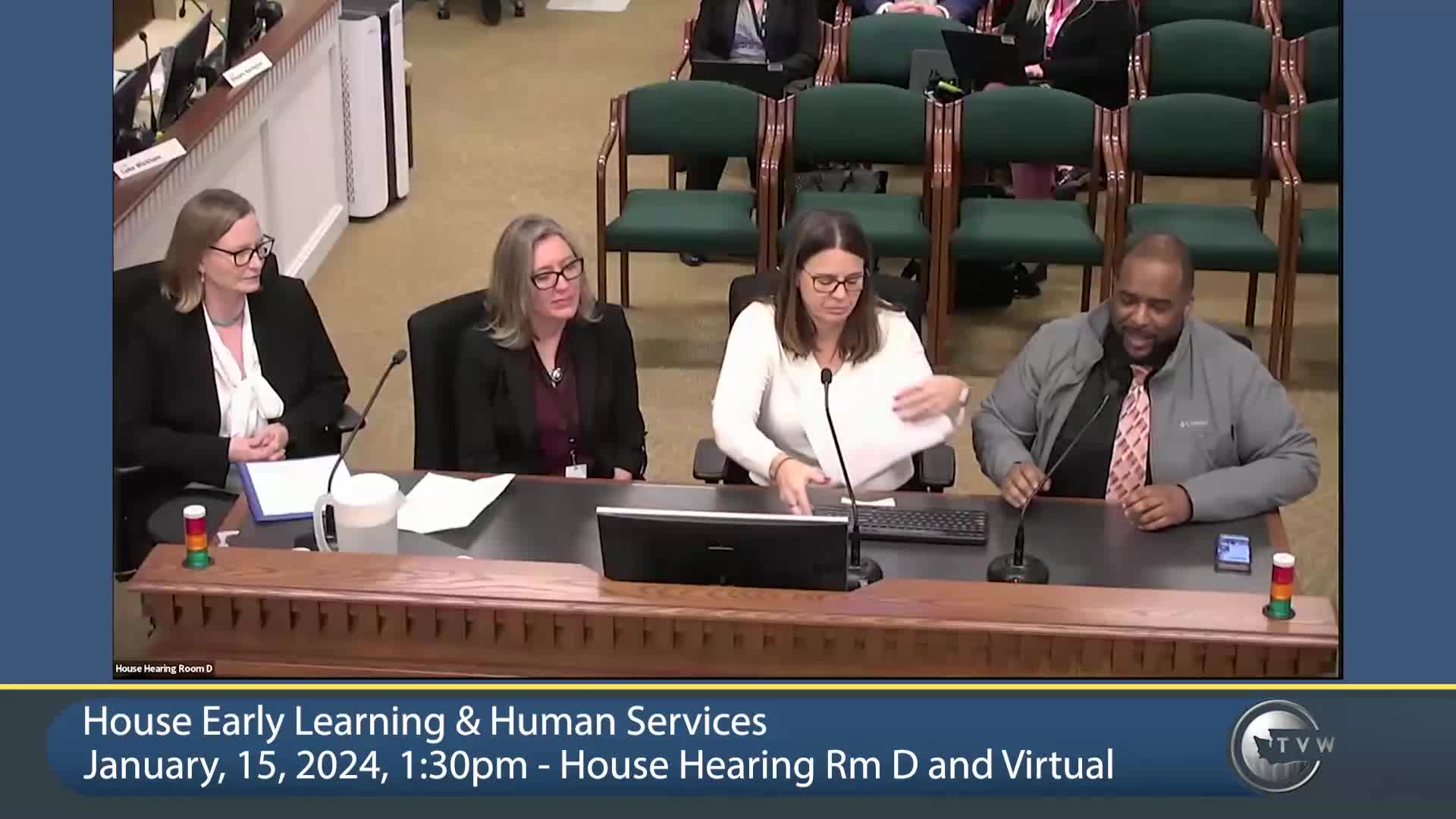Mockingbird Society urges expansion of family‑hub model, housing and higher EFC payments
Get AI-powered insights, summaries, and transcripts
Subscribe
Summary
The Mockingbird Society described the Hub‑Home (Mockingbird Family) model, youth priorities including financial literacy, peer supports, housing for transition‑age youth and changes to extended foster care payments and eligibility.
Samuel Martin, lobbyist for the Mockingbird Society and a person with lived experience, presented the Mockingbird Family hub‑home model and policy priorities voiced by youth advocates.
Martin described the Mockingbird Family model as interconnected micro communities: each constellation links 6–10 geographically proximate foster or kinship families and roughly 6–18 youth, creating shared hub homes, respite and peer supports. He said there are six active constellations in Washington and expanded use of the model is part of compliance and service‑improvement strategies under the state’s settlement agreements.
Youth leaders identified transition supports as a priority. Martin said young people requested financial‑capability interventions beginning at about age 14 (bank accounts, financial literacy coursework and modest monthly allowances), peer‑to‑peer mentorship, and greater access to permanent supportive housing for young people with high needs. He said federal chronic‑homelessness definitions and prioritization practices sometimes exclude younger people who need long‑term supportive units.
Martin reviewed the extended foster care (EFC) history: pilot programs, system assessment work in 2023 and legislative changes. He noted that Senate Bill 5230 (an earlier proposal) did not pass but that later action (Senate Bill 5098) removed several barriers to EFC eligibility. Martin said current supervised independent living payments (about $861 monthly) are inadequate for youth and that advocates are pursuing an increase in state funding. He also said approximately 15% of young people in EFC (about 143 youth) were experiencing homelessness and urged housing supports for that population.
Why it matters: Transition‑age youth leaving foster care are at elevated risk of homelessness and unstable employment. Advocates urged a combination of housing, financial supports and peer mentorship to improve outcomes and reduce long‑term costs.
